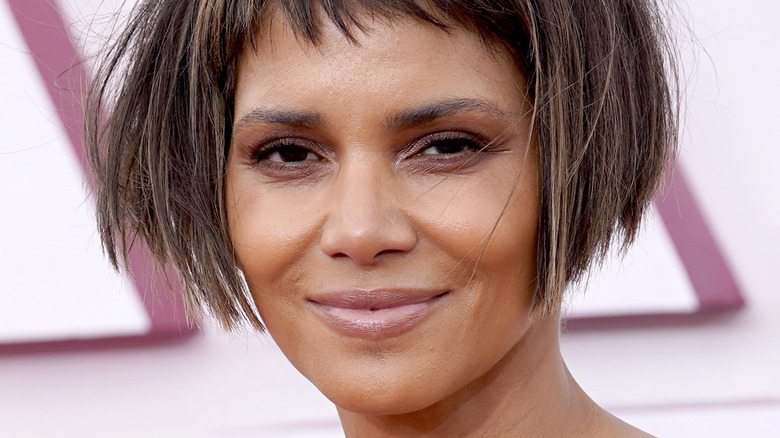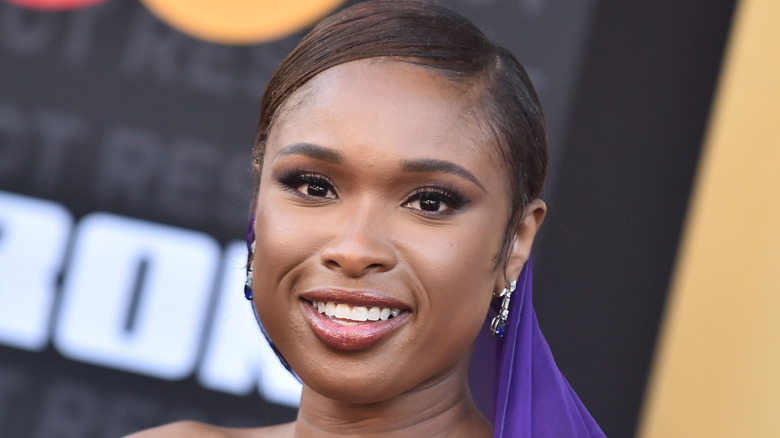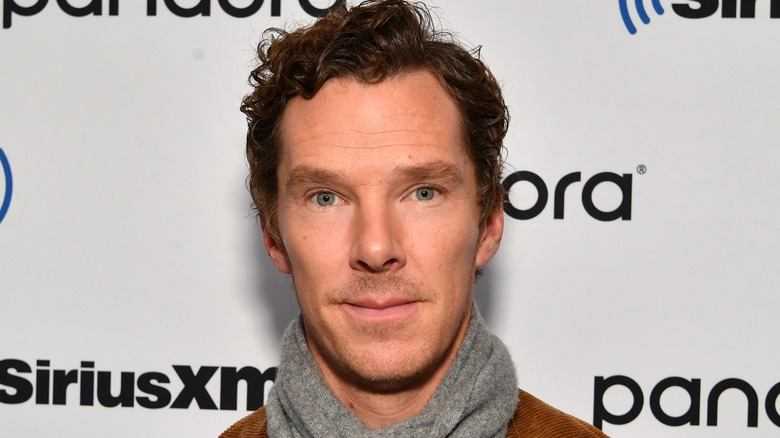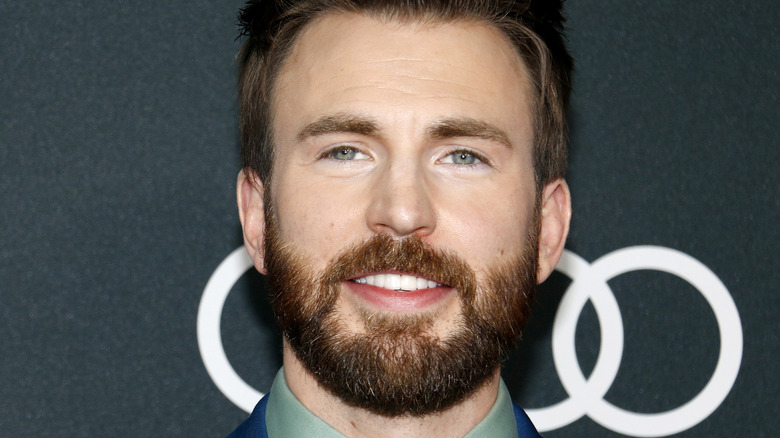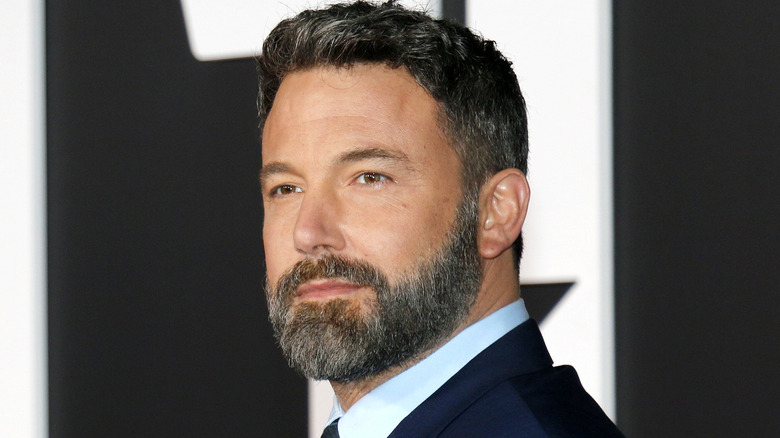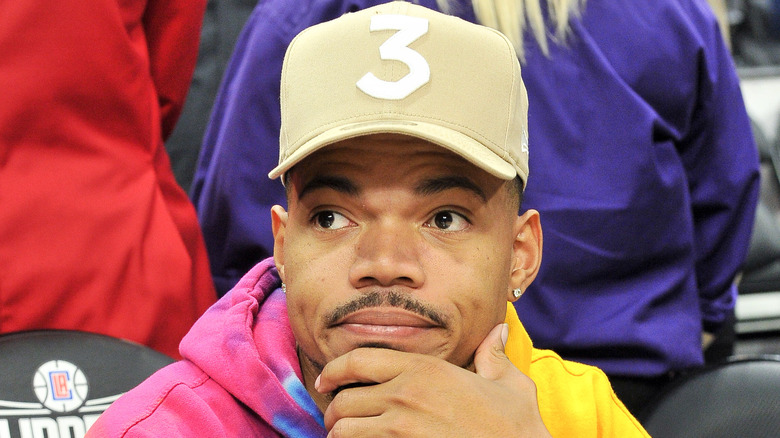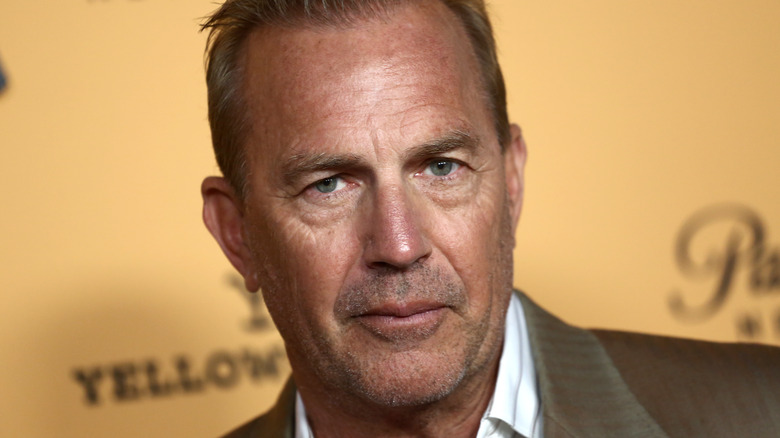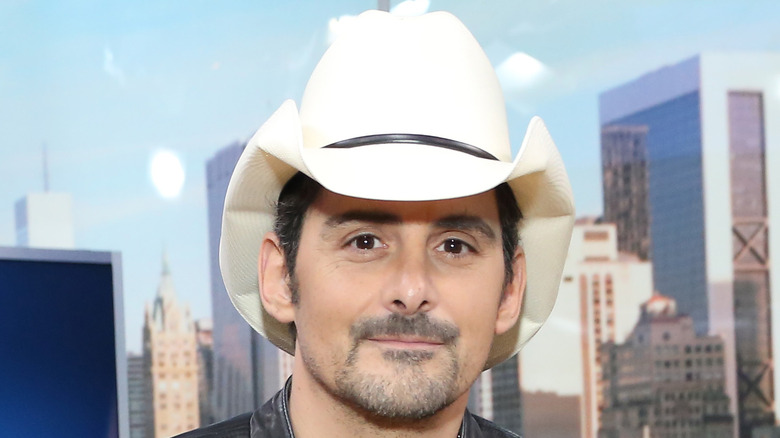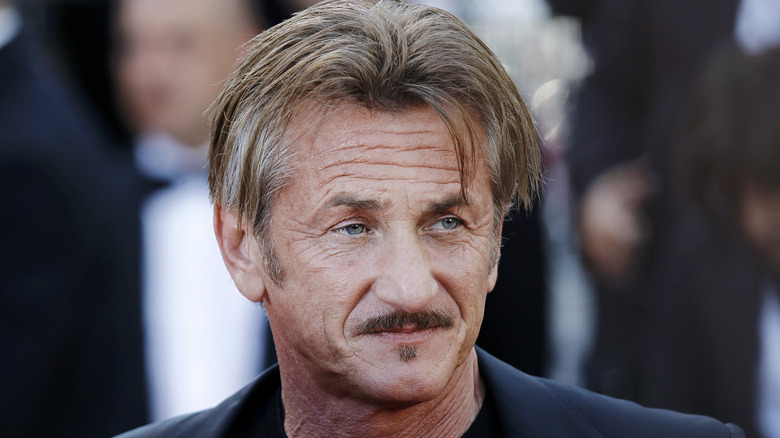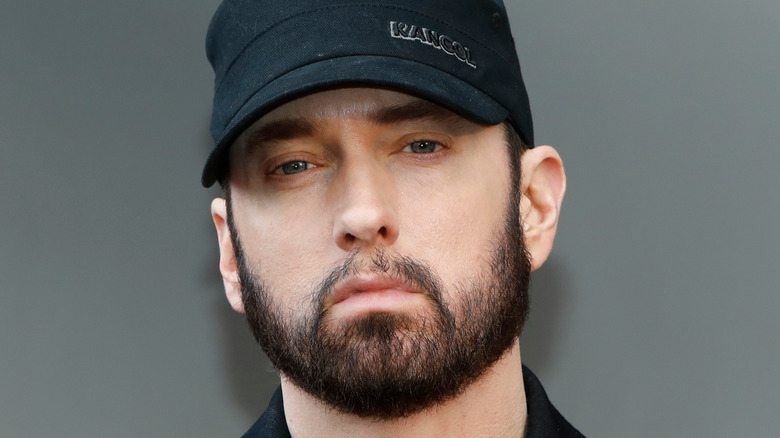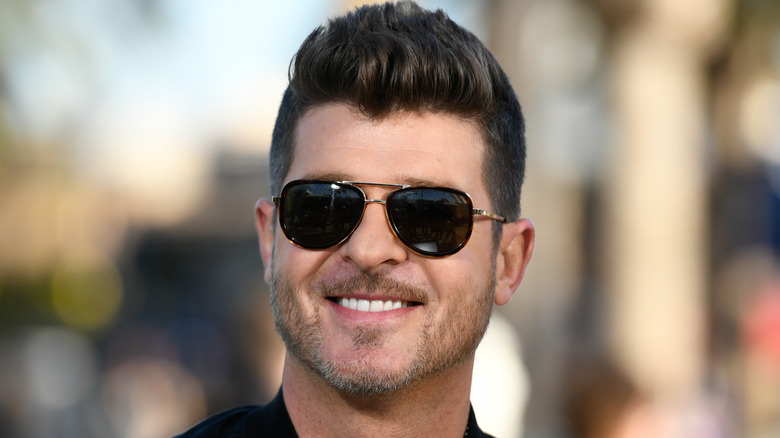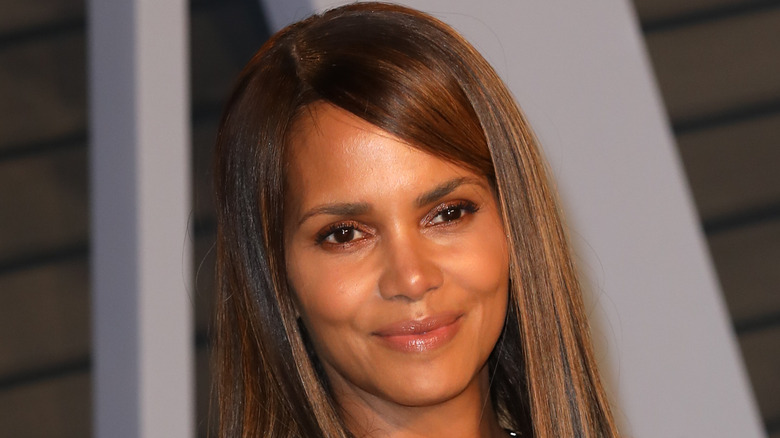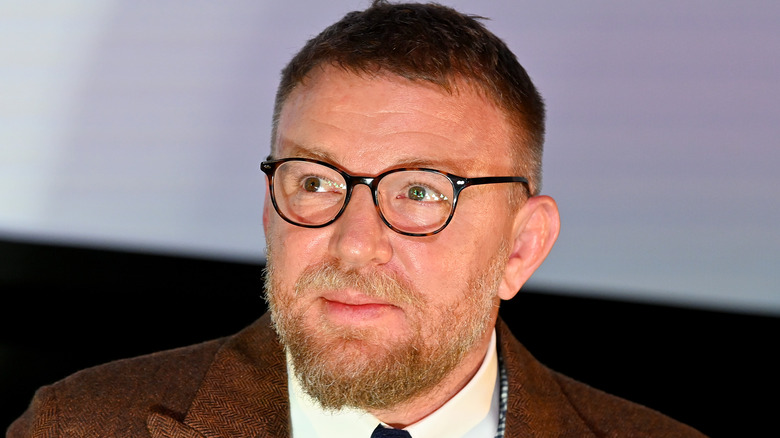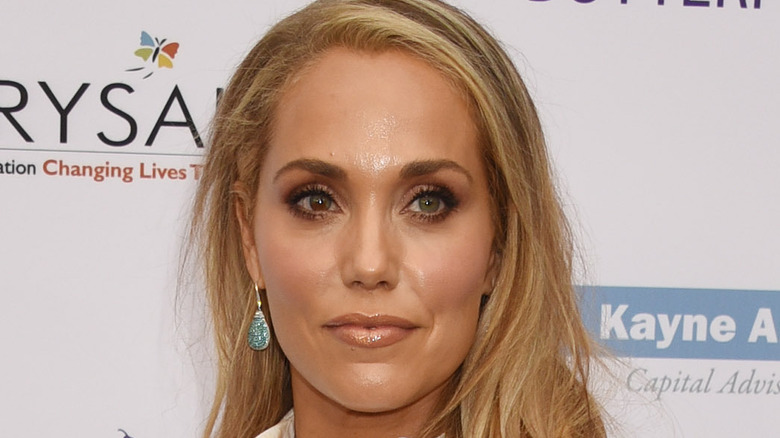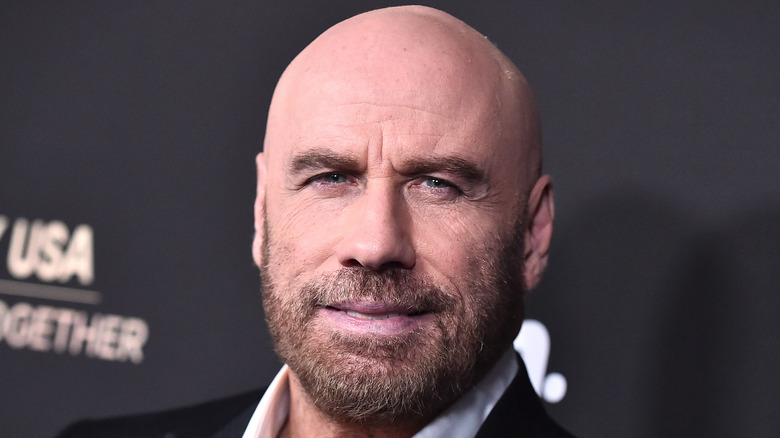Stars Who Defended Their Biggest Flops
Art is super subjective, which probably isn't news to anyone, so it's never known if a person's project will be well-received or not. Sure, there are a lot of things that a person can do to increase the chances of someone liking whatever is released, like putting in the necessary time and effort during the creation of, say, a song or album to make sure it's of high-quality. But outside of that and maybe marketing the project, there's not much more an artist can do to ensure audiences will like it.
Of course, the worst-case scenario for anyone putting their work out there is that it gets widely panned or even laughed at. So what does someone do in that case? Should that person completely dissociate themselves from whatever they put out or stand tall and defend it? In this case, we listed the entertainers who took the latter route and stuck up for their biggest flop. Some defended it soon after it was released, while others did it years later after seeming to gain some perspective about the negative reviews.
Jennifer Hudson doesn't get why people hated Cats
When "Cats" the musical opened in 1981 at the New London Theatre, it received very warm reviews and won the Olivier and Evening Standard Awards for Best Musical. It also won seven Tony Awards in 1983 after playing at New York City's Winter Garden Theatre. But when the film version hit theaters in 2019, let's just say it didn't generate the same positive response, despite having big-name acts attached to it like Taylor Swift, Idris Elba, and Rebel Wilson. Rotten Tomatoes, for example, has a dismal 19% rating for the film. Plus, some critics said there was little to no plot, while others said they found the costume choices disturbing since effects were used to make characters look half-human, half feline.
"The faces seem to eerily float atop the faux fur, never quite jelling into one plane of vision," wrote Boston Globe writer Ty Burr about the characters. "Some cats wear clothes, some don't; all are, um, neutered." Jennifer Hudson, however, said she doesn't see why the film was reviewed so poorly and admitted to being affected by it. "I think it was a bit overwhelming," she told Total Film in 2021. "It's unfortunate that it was misunderstood. I think later down the line, people will see it differently. But it is something I am still very proud of and grateful to have been a part of. Yeah, I got to be Grizabella the Glamour Cat!"
Benedict Cumberbatch doesn't do movies for 'riches'
A film about the info leaking website WikiLeaks, actor Benedict Cumberbatch playing the site's founder Julian Assange, and a healthy-sized buzz about the project before it even came out. All of those components should've guaranteed major success for "The Fifth Estate," right? Wrong because critics hated it and most movie-goers ignored it. Forbes reports the film had a $28 million budget but it only raked in $6 million internationally. And it wasn't so much the cast critics didn't like, just everything else. For one, a Newsday writer said "The Fifth Estate" had "sharp" acting but it was still "disappointing," and U.S. News & World Report said that it was "Bogged down by a heavy-handed script."
But none of the bad reviews have seemed to bother Cumberbatch, based on what he told Yahoo! in 2013. "[It was] an amazing character, an extraordinary role, and a really fascinating story," said the actor. "No one has a crystal ball when they're making a film. I don't choose roles to get fame or recognition or riches, I choose them because I'm interested in getting as much variety, both with who I work with and what I work on, so I wouldn't change the decision to do that. "The Fifth Estate's" director Bill Condon also spoke about the terrible reviews and blamed it on the film being "rushed." "The movie wasn't connecting in the way that I had hoped," he told IndieWire in 2015.
Chris Evans called Fantastic Four a true lifesaver
Probably one way to develop a thick skin as an artist or anyone who's creating something that will be critiqued is to separate what others say about your project and what it actually means to you. It seems that actor Chris Evans took that approach because he defended playing Johnny Storm, a.k.a. the Human Torch, in 2005's "Fantastic Four." He also reprised the role in 2007's "Fantastic Four: Rise of the Silver Surfer," but many critics trashed the first movie, which also stars Jessica Alba, Ioan Gruffudd, and Michael Chiklis. "It's all setup and demonstration, and naming and discussing and demonstrating, and it never digests the complications of the 'Fantastic Four' and gets on to telling a compelling story," wrote late film critic Roger Ebert about the project.
Still, Evans said the film is dear to him, regardless of how it was received because he secured the role at a crucial time in his life. "I had just been dumped," he told The Hollywood Reporter's "Awards Chatter" podcast in 2020. "I needed a win, and I remember getting that phone call and just thinking, 'Aw, yes!' It was really a role that I enjoyed, it was the best paycheck I had ever gotten. It felt like a little bit of a corner had been turned and maybe I could parlay this into something else." And boy, parlay did he ever since Evans eventually became Captain America.
Ben Affleck gained a lot of perspective
Ben Affleck and Jennifer Lopez sent people on a trip of nostalgia after reuniting as a couple in 2021. The second time, however, it could be said the media isn't as fascinated with their union as the first go-around, which was in 2002. It was then, the pair met on the set of 2003's "Gigli," a film they both starred in. The way it seemed, the public loved Affleck and Lopez together off-screen but just not on it. In fact, some have called "Gigli" the worst movie ever made, plus, Yahoo! says it only pulled in $7.3 million after getting a $54 million production budget.
Lopez and Affleck were ridiculed mercilessly after the film came out as well, but in a 2003 interview, Affleck explained why he was okay with the negative speak. He also disagreed that "Gigli" doesn't have any good qualities, but still admitted its flaws. "I think, actually, like scene by scene, there's really good stuff in there, but I don't think it hangs together as a movie, so I think fundamentally it doesn't work, but I mean the worst movie of the century?" he said while speaking to writer Paul Fischer, which was published by Female.com.au. "I feel like at least I can say I did nothing small, either succeeded grandly or failed grandly, so I think you must have perspective on it." Now that's some positive thinking, isn't it?
Chance The Rapper refused to be ashamed
For a lot of musicians, it takes years and multiple albums before their music gets widely noticed, but Chicago's Chance The Rapper found success from the start. In 2012, he dropped his debut mixtape "10 Day" to critical acclaim. He then followed that up with "Acid Rap" one year later. But it was his third mixtape "Coloring Book," released in 2016, that made him a global star. So when word came that Chance was releasing his first official LP in July of 2019 called "The Big Day," the excitement was palpable and considering that so many people loved his mixtapes, it was probably easy for them to assume they'd also dig "The Big Day." That was far from the case, though, because it received awful reviews.
Some said at 22 songs the project was simply too long, and others said they didn't like that many of the cuts focused on Chance's marriage to Kirsten Corley, which was new at the time. Chance eventually responded to the bad reviews in a series of now-deleted Twitter messages that were captured by Audacy. "Some people want me to feel ashamed," he wrote about "The Big Day." "Shame is heavy ... and feeling shame for something that you were once prideful about is super heavy. Chance also said during an interview on New York station "Hot 97" that he's "Good at rapping," so it doesn't matter what people say about his album.
Kevin Costner disagrees that Waterworld was a low point
Constant delays, an incredibly oversized budget, and beef between the star and director. All of those things contributed to Kevin Costner's film "Waterworld" being called one of the biggest flops ever. Plus, all of the problems associated with the film began surfacing in the press while it was still in production, so it developed the wrong kind of buzz. On top of that, Forbes said the budget for the film eventually swelled to $175 million, and over time the studio just broke even.
"In the future, Costner should only appear in pictures he directs himself," said "Waterworld" director Kevin Reynolds in an interview with Entertainment Weekly before the film was released. "That way he can always be working with his favorite actor and his favorite director." In 2015 Hollywood-Elsewhere.com blogger Jeffrey Wells had a text exchange with Costner, who defended the film. "I'm not sure you know how beloved the movie is around the world. Being hard [on a film] is really easy if you don't know the underbelly of what [went into it]," he texted Wells. "When you do know the forensics of a movie — the participation and decisions of others that one has to stand in front of — you can't help but see it differently ... I know that people might think of 'Waterworld' as a low point for me. It wasn't ... The movie with all its imperfections was a joy for me."
Brad Paisley 'wouldn't change a thing' about Accidental Racist
In 2021 there's a lot of talk about race relations in the U.S., but country singer Brad Paisley sparked a major race discussion in 2013 after releasing his song "Accidental Racist," featuring rapper LL Cool J. However, many came down on both artists over the title as well as the lyrics, and even "SNL" spoofed the cut. "When I put on that T-shirt, the only thing I meant to say is I'm a Skynyrd fan/The red flag on my chest somehow is like the elephant in the corner of the south," sings Paisley in the song. Cool J comes in afterward and recites lyrics like, "What the world is really like when you're living in the hood/Just because my pants are sagging doesn't mean I'm up to no good."
Some accused Paisley of being way off about racism in the U.S., while others said Cool J was perpetuating Black stereotypes. "I don't know if any of you noticed, but there is some racial tension, here and there," said Paisley on "The Ellen DeGeneres Show" in 2013 while defending "Accidental Racist," adding, "It kind of deals with that and I felt like when we were writing this song, it wasn't necessarily up to the media ... or sort of talk radio or anything like that to deal with that anymore. I think it's music's turn to have the conversation." Paisley also addressed the criticism in a tweet writing, "I wouldn't change a thing."
Sean Penn defended his cast
Sean Penn's film "The Last Face," which he directed, is about a man and woman having a relationship during a war in Sudan, and it premiered at The Cannes Film Festival in 2016. Of course, if critics at the French festival review a film favorably, it can do wonders for that project and give it a giant push toward success. But the opposite occurred in Penn's case, because those at Cannes panned the film and it wasn't just critics, moviegoers slammed it as well. Others in the media also didn't care for the flick, like a writer from The Hollywood Reporter who called it "self-important," while referring to the romance between Charlize Theron and Javier Bardem's characters as "empty." Meanwhile, IndieWire called "The Last Face" Penn's "worst movie."
Madonna's ex was asked about the negative reviews during a Cannes press conference and he stuck up for the film. "I stand behind the film as it is," stated Penn. "Certainly, everybody is going to be well entitled to their own response ... I'm surrounded at this table by performances I'd pay to see 100 times." You tell 'em, Sean!
Eminem answered critics with a full-page ad
Eminem caused a lot of shock and excitement when he dropped his 2018 album "Kamikaze" without announcing it. Right away, his fans expressed joy on social media, and the LP went number one in various parts of the world. But a lot of music journalists slammed the album and called it a complete sonic failure. "The songs aren't memorable enough to overcome the latest tinges of homophobia and misogyny from a 45-year-old who either knows better or is outrage-trolling for the attention he doesn't need," wrote Pitchfork about "Kamikaze." Plus, Stereogum accused Eminem of being so "angry" on "Kamikaze" songs, that it makes him unlikable.
Oftentimes when someone disses the "8 Mile" rapper, that person winds up getting decimated in one of his verses, but instead, Eminem and his labels Shady Records, Aftermath Entertainment, and Interscope took out a full-page ad in The Hollywood Reporter. The ad shows the "Kamikaze" album cover and lists some of the bad reviews. Then underneath the photo, it reads, "#1 in 103 countries and 434,000 equivalent album units in the US first week. Thanks for the support, a**holes." Now that's a classic Eminem response.
Robin Thicke just wanted his woman back
In football, a "Hail Mary" pass is used whenever a team is losing in the last few seconds of a game and they're desperate for a touchdown. It's not clear if Robin Thicke is a football fan but he seemed to use a Hail Mary attempt to get back actress Paula Patton, who was his estranged wife at the time. The couple split in 2014, which came amid rumors that Thicke cheated on her. Then, on July 1, 2014, the soul singer released an album called "Paula," obviously named after Patton.
But a lot of folks said the album was more annoying than romantic, like the Los Angeles Times who accused Thicke of believing "The scale of his gesture, rather than its sincerity, is what matters." Entertainment Weekly dissed the album as well, calling it the "weirdest album" of 2014 and possibly Thicke's "worst." The California-born crooner spoke about "Paula" with The New York Times in 2015 and went to bat for it. "Look, my songwriting has always been autobiographical, and always will be. The 'Paula' album was no different," Thicke explained. "I was struggling through my toughest time, and I decided to share it ... In hindsight, the only thing I would have done differently was, I wouldn't have promoted it or sold it. I would have given it away. That would have kept the purity of the message intact."
Halle Berry won't apologize for getting a huge check
After Halle Berry won the Oscar for Best Actress in 2002, being the first Black woman to do so, she thought she'd be sifting through a heap of top-notch scripts from the biggest screenwriters — but that wasn't the case. "I thought, 'Oh, all these great scripts are going to come my way; these great directors are going to be banging on my door,'" she told Variety in 2020. "It didn't happen. It actually got a little harder." So, that could be why Berry decided to star in the film "Catwoman" just two years later, a role that some might say is beneath a recent Oscar winner. Then after the film was out, she received some of the worst reviews of her career, with Rotten Tomatoes giving it a measly 9% rating.
"The filmmakers have given great thought to photographing Berry, who looks fabulous, and little thought to providing her with a strong character, story, supporting characters or action sequences," wrote Roger Ebert in 2004. "In a summer when 'Spider-Man 2' represents the state of the art, 'Catwoman' is tired and dated."
Berry spoke about the bad reviews with Entertainment Weekly in 2021 and said she has no regrets about being in the film. "It was one of the biggest paydays of my whole life, which there's nothing wrong with that," she explained. "I don't want to feel like 'Oh, I can only do award-worthy stuff.' What is an award-worthy performance?"
Guy Ritchie wishes he timed things differently
To say that director Guy Ritchie's 2002 film "Swept Away" was critically panned when it was released would be an understatement of huge proportion. The film starred Madonna, his wife at the time, so it had a colossal-sized buzz way before its premiere, but the talk of how bad people found it afterward was even louder. In fact, U.S. reviews were so bad that Ritchie decided to forgo a theatrical release in the United Kingdom and only put the movie out on video there. "It won't be released here because it's sh*t," he told the Oxford Union in 2002 (via The Guardian). "The idea was that the wife and I would make some sassy little art movie, but we got the sh*t kicked out of us."
But six years later, Ritchie developed a whole new outlook about "Swept Away" and didn't think it was quite so bad. He also admitted to releasing it at the wrong time. "I like the movie," he told Complex in 2008 (via DigitalSpy). "Both 'Swept Away' and 'Revolver' weren't supposed to be vastly successful movies. I was already established by then, but those are the kind of movies you should make before you're established. I went about it all wrong." The question is, if "Swept Away" was released by a younger, non-famous Ritchie, would people have liked it better? One could argue that people expect more out of a well-known filmmaker who's already churned out quality material.
Elizabeth Berkley says the '90s were far 'different'
If there were an award given to an actor for taking the biggest beating in the press after their film was released, Elizabeth Berkley would be behind a podium somewhere hoisting a trophy to the sky. That's because her 1995 film "Showgirls" was considered not only bad but a complete laughing stock. It was called nothing but an "expensive soap opera" by Roger Ebert, for example, and one of the worst movies of all time by The Spokesman-Review. The film also won seven Golden Raspberry awards, a prize given to the very worst movies. Plus, Berkley's agent dropped her after reviews came out (via Los Angeles Times).
But over the years, "Showgirls" has become nothing short of a cult classic for its delicious campiness and maybe for how infamous it became. There was a crowdfunding campaign set up by fans to make a sequel called "Showgirls 2: Penny's from Heaven," released in 2011. Plus, there was a "Showgirls" off-Broadway musical and countless watch parties, with Berkley speaking at one of them in 2015. "1995 ... was such a different time, where taking risks like that were not embraced," she told the crowd. "They were laughed at. They were shamed publicly. To be a young girl in the center of that was something that was quite difficult. But I found my own resiliency and my power and my confidence ... because of you guys." Now that's how you bounce back from awful press.
John Travolta has zero regrets
"Battlefield Earth" seems to be the perfect name for John Travolta's sci-fi film because a lot of people said it was a battle just to watch it. The film, released in 2000, is based on a novel written by Scientology founder L. Ron Hubbard, and because it's associated with Scientology, major Hollywood studios wouldn't finance it, per Yahoo!. But an independent studio called Franchise Pictures eventually cut a check and production was underway.
But if it were up to some critics, the movie should've stayed in Hubbard's book, because it received the most dreadful reviews. A writer for The Washington Post said "Battlefield Earth ” is "Much ado about nuttin'," and, "It's a bad movie, end of story." FlickFilosopher called it a rip-off of "'Planet of the Apes,' 'Independence Day,' 'Total Recall' and almost every other science fiction flick ever made." The film also tanked at the box office, making $29 million after spending $73 million, also confirmed by Yahoo!. But Travolta — who's a Scientologist — said he's still very proud of the film and wouldn't change a thing. "No way," he told The Daily Beast in 2014 when asked if he regretted being in "Battlefield Earth." "Are you kidding? Why would I ever regret that? I had the power to do whatever I wanted, and I chose to do a book that I thought was worthy of making into a movie. It's a beautiful film."

